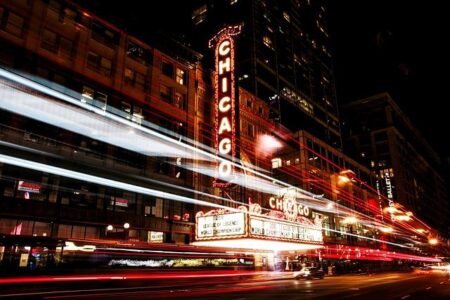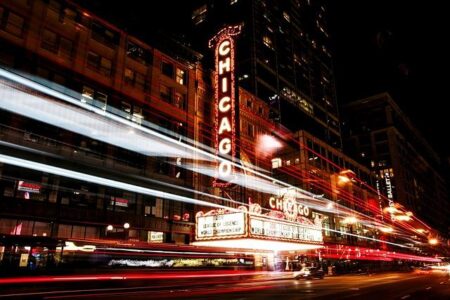Remembering the Inaugural Special Olympics at Soldier Field: A Catalyst for Inclusion and Athletic Excellence
The Historic Launch of the Special Olympics at Chicago’s Soldier Field
On this critically important day in Chicago’s sporting history, Soldier Field was the stage for an unprecedented event that reshaped the world of athletics and inclusion. The first-ever Special Olympics, held in 1968, celebrated the talents of athletes with intellectual disabilities and ignited a global movement toward equality and opportunity in sports. The stadium buzzed with excitement as over a thousand competitors demonstrated their skills, inspiring a city and the world to embrace a new vision of athletic achievement.
This landmark event was distinguished not only by its scale but also by its mission to empower and unite. It highlighted:
- Empowerment: Providing a platform for athletes to showcase their unique abilities with pride.
- Community Building: Creating bonds among families, volunteers, and spectators that transcended the competition.
- Social Progress: Raising awareness and fostering acceptance of intellectual disabilities across society.
| Event Details | Facts |
|---|---|
| Date | July 20, 1968 |
| Venue | Soldier Field, Chicago |
| Number of Athletes | Over 1,000 |
| Sports Included | Track and Field, Swimming, Basketball, and others |
Chicago’s Role as the Cradle of a Worldwide Movement for Athletes with Intellectual Disabilities
In 1968, Chicago’s Soldier Field became the birthplace of a revolutionary event that forever changed perceptions of athletes with intellectual disabilities. Initiated by Eunice Kennedy Shriver, the inaugural Special Olympics attracted participants from across the United States and Canada, emphasizing determination, courage, and sportsmanship over mere competition. This event not only celebrated athletic prowess but also challenged societal norms, encouraging communities to embrace diversity and inclusion in sports.
Key features of the first Special Olympics included:
- Adapted track and field events tailored to athletes’ capabilities
- Strong volunteer involvement that energized the games
- Extensive media coverage that spread the message of inclusion nationwide
| Year | Participants | Events | Represented Cities |
|---|---|---|---|
| 1968 | 1,000+ | 5 | 25 |
From this seminal event, a global movement blossomed, now engaging millions of athletes annually. It has transformed public attitudes and influenced policies worldwide, promoting adaptive sports programs in schools, community centers, and professional organizations. Soldier Field remains a symbol not only of athletic competition but also of resilience, empathy, and international solidarity.
Transformative Effects on Communities and Inclusivity Policies Following the First Special Olympics
The 1968 Special Olympics at Soldier Field did more than introduce a new sporting event; it sparked profound social change within local communities. The games challenged entrenched biases and fostered greater acceptance, leading to increased interaction among people of all abilities. This shift encouraged schools and community centers to develop inclusive programs that celebrate diverse talents and promote equal opportunities.
Significant outcomes included:
- Heightened visibility and advocacy for individuals with intellectual disabilities
- Creation of recreational and educational initiatives focused on inclusivity
- Strengthened partnerships between civic groups and disability rights organizations
| Policy Focus | Community Impact | Long-Term Benefits |
|---|---|---|
| Education | Expanded inclusive classroom practices | Improved access to learning resources |
| Employment | Launch of job training programs | Increased workforce participation |
| Healthcare | Enhanced support services | Better overall quality of life |
Insights from the First Special Olympics and Strategies for Advancing Inclusive Sports
Reflecting on the inaugural Special Olympics reveals valuable lessons for future efforts to promote inclusivity in sports. Central to the event’s success was robust community involvement-volunteers and local organizations played a crucial role in creating an environment where all athletes felt valued. Ensuring accessibility across venues, transportation, and interaction channels remains essential. Moreover, providing tailored support to meet the diverse needs of participants enhances both performance and a sense of belonging.
To build on this foundation, the following recommendations are vital:
- Comprehensive Training: Equip coaches and volunteers with skills in adaptive techniques and disability awareness.
- Accessibility Enhancements: Conduct regular audits of physical and digital spaces to eliminate barriers.
- Broadened Partnerships: Collaborate with a wider range of community groups to expand reach and resources.
| Focus Area | Current Status | Suggested Improvements |
|---|---|---|
| Volunteer Education | Basic training provided | Implement in-depth inclusivity workshops |
| Facility Accessibility | Partially compliant | Upgrade to full ADA standards |
| Community Engagement | Limited to local areas | Expand outreach to diverse populations |
Looking Ahead: The Enduring Legacy of the Special Olympics at Soldier Field
The inaugural Special Olympics at Soldier Field was a transformative milestone in Chicago’s history and the global movement for sports inclusivity. As the city honors this anniversary,the event’s legacy continues to inspire,reminding us of the power of perseverance,community spirit,and the unifying nature of competition. Today, Soldier Field stands not only as a historic sports arena but also as a beacon of hope and progress for athletes of all abilities worldwide.




